Manage Care

Plan All-Cause Readmissions Tip Sheet
Measure Description:
The number of members 18 years of age and older with acute inpatient and observation stays during the measurement year that was followed by an unplanned acute readmission for any diagnosis within 30 days.
Incentives will be paid on an annual basis, following the end of Quarter 4. For additional information refer to the CBI Technical Specifications.
This is an inverse measure: a lower rate of readmissions qualifies for more CBI points.
- Members in hospice or using hospice services anytime during the measurement year.
- Members who died any time during the measurement year (CBI 2024 only).
- Members with principal diagnosis of pregnancy or perinatal condition on the discharge claim.
- Planned admissions associated with:
- A principal diagnosis of maintenance chemotherapy.
- A principal diagnosis of rehabilitation.
- Organ transplants (kidney, bone marrow, organ, and introduction to autologous pancreatic cells).
- Potentially planned procedures without a principal acute diagnosis (Example: Coronary Artery Bypass, drainage of upper extremity, and fusion of lumbosacral joint).
According to Journal of Family Practice, common contributing factors to readmissions are:
- Feeling unprepared for discharge.
- Difficulty performing daily activities.
- Difficulty accessing discharge medications.
- Trouble adhering to discharge medications.
- Lack of social support.1
Findings from the Agency for Healthcare Research and Quality also indicate that Black and Hispanic patients experience higher rates of potentially avoidable readmissions than white patients. Several factors can contribute to disparities in readmissions, including:
- Language barriers and access to interpreters
- Health literacy
- Culturally competent patient education
- Social determinants of health
- Mental health
- Comorbidities2
- Institute for Healthcare Improvement. (n.d.). Ask Me 3: Good Questions for Your Good Health. Retrieved from http://www.ihi.org/resources/Pages/Tools/Ask-Me-3-Good-Questions-for-Your-Good-Health.aspx
- Centers for Medicare & Medicaid Services Office of Minority Health (CMS OMH). Guide to Reducing Disparities in Readmissions. Revised August 2018. Retrieved from https://www.cms.gov/about-cms/agency-information/omh/downloads/omh_readmissions_guide.pdf
Educate All Members To:
- Call their PCP office for a follow-up appointment after their hospital discharge.
- Use the Alliance’s Nurse Advice Line: 1 (844) 971-8907 – available to all Alliance members 24 hours a day, 7 days a week, 365 days a year
- Utilize Ask Me 3® during visits to encourage members to ask three specific questions of their providers to better understand their health conditions, and what they need to do to stay healthy.
- What is my main problem?
- What do I need to do?
- Why is it important for me to do this?3
Assign Clinic Staff To:
- Monitor the Provider Portal Linked Members Inpatient Admissions report as a tool for tracking linked members who were recently admitted in the hospital.
- Contact members who have been recently discharged from inpatient care to bring them in for a follow-up visit. This can also be accomplished through a telehealth visit and will count for the Post-Discharge Care CBI measure.
- Use the follow-up visit to educate the patient about his or her diagnosis and medicines and assess the degree of the patient’s understanding of discharge plan and medications. Successful techniques include using the Teach-Back Method for improving patient understanding and adherence.
- Contact the patient a few days after post discharge visit to reiterate the care plan and check-in with the member. Post discharge telephone follow-up has been shown to reduce hospital readmissions and is the most effective closer to the date of discharge.
- Track and trend clinic’s most vulnerable patients. Attempt multiple outreach efforts to those who are most fragile before they are readmitted. For members at a high risk of readmission, provide:
- Medication reconciliation.
- Self-management training to members and caregivers (help members identify when to manage acute deterioration or when to seek timely care from their PCP).
- Refer Alliance Members to Care Management Services, including Complex Case Management and Care Coordination, by calling Case Management at (800) 700-3874 ext. 5512.
- Refer Alliance members to Enhanced Care Management (ECM) Services and Community Supports through the Alliance Provider Portal, online referral on our website, or by phone at 831-430-5512.
- Refer Alliance Members to behavioral health services through Carelon Behavioral Health Primary Care Provider Referral Form.
- Refer Alliance Members to the disease management and health education programs using the Health Programs Referral Form. For any questions, please call the Alliance Health Education Line at (800) 700-3874 ext. 5580.
- Refer Alliance Members that have transportation challenges to the Alliance’s Transportation Coordinator at 1-800-700-3874 ext. 5577; this service is not covered for non-medical locations or appointments that are not medically necessary.
- Refer Alliance Members with limited English proficiency (LEP) or who are deaf or hard of hearing to telephonic, and face-to-face interpreter services.
- Utilize the “5 whys” to gain insight from the member to understand the factors that brought them to the hospital. For example, an interview might reveal that a member did not take her medication, which then contributed to her rehospitalization.
- Why did she not take her medication? She did not take it because she did not have it.
- Why? She did not go to pick it up from the pharmacy.
- Why? She did not have transportation to the pharmacy. Continue to ask until you have identified opportunities that your team can address4.
3. White, MD, B., Carney, PhD, P., Flynn, MD, J., Fields, MD, MHA, S., & Department of Family Medicine. (2014, February). Reducing hospital readmissions through primary care practice transformation. Retrieved from https://www.mdedge.com/jfponline/article/80074/practice-management/reducing-hospital-readmissions-through-primary-care
4. Designing and Delivering Whole-Person Transitional Care. Content last reviewed June 2017. Agency for Healthcare Research and Quality, Rockville, MD. https://www.ahrq.gov/patient-safety/settings/hospital/resource/guide/index.html
Contact us | Toll free: 800-700-3874

